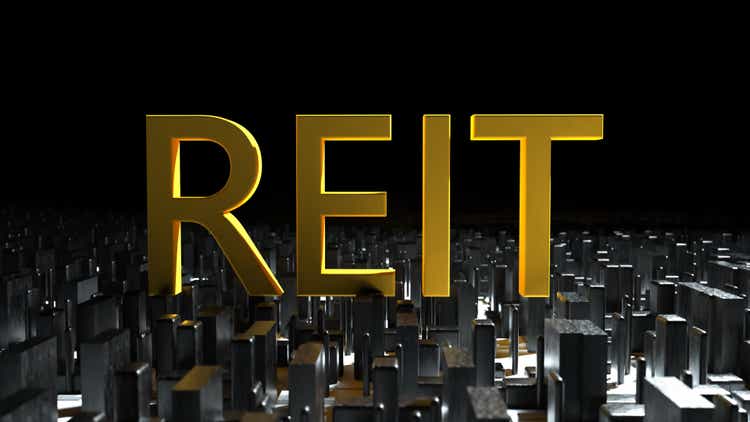In the legal field obsessed with precedents, AI is sparking a new one. Lawyers are incorporating legal AI “copilots” and related tools into their workflows, driven by a booming landscape of AI legal startups.
2024 marked a record-breaking year for legal-tech startups, which raised $4.98 billion overall, largely propelled by the booming interest in AI. And it hasn’t slowed down one bit. This past June, one company that’s leading the funding pack, Harvey, raised another $300 million at a $5 billion valuation after securing $300 million at $3 billion just three months prior. In recent weeks, Harvey also struck a major partnership with LexisNexis to integrate the prominent legal database’s core research tools into its platform. Days later, law practice management company Clio acquired AI and legal research company vLex for $1 billion in what LawNext referred to as “a landmark deal that will undoubtedly reshape the legal tech landscape.” The AI-ification of the legal industry may not be fully realized, but it’s certainly underway.
“Lawyers are not big R&D people. They’re not hackers and experimenters. They are ‘tell me what this thing can do. Tell me it is safe to use it, and I’ll use it.’ We’re not yet at a collective sense of that in the legal profession to have hit the threshold of widespread [AI] adoption, but I think it is slowly approaching,” said Jordan Furlong, a lawyer and legal sector analyst. “I think we’re probably going to hit it maybe within the next couple of years. It’s hard to say—it could be a lot sooner.”
The impact of AI in the legal sector goes far beyond the tools lawyers use to complete tasks, however, and could dramatically shift legal processes in fundamental ways. Legal professionals now have to deal with the fallout of AI-generated and manipulated evidence and the larger societal erosion of trust in what we see and hear. There is a risk of biased AI systems being used as decision makers in the legal systems. There’s also the question of: if everyone gains access to tools to help them navigate legal documents and concerns, will people even need lawyers in the same ways they do today?
How legal professionals are using AI today
International law firm Troutman Pepper Locke is using several commercially available AI tools, such as the full suite of Thomson Reuters AI products, and was even an early investor in CoCounsel, Thomas Reuters’ generative AI assistant for legal professionals. In 2023, the firm also rolled out an internal AI system it built on OpenAI’s GPT-4. Called Athena, it acts as a chatbot-style assistant and is used for tasks from refining draft correspondences for clients to answering questions about the firm’s internal processes. According to Troutman Pepper Locke chief innovation officer William Gaus, the firm’s staff prompt Athena about 3,000 times every day.
The same type of tool that Troutman Pepper Locke built internally is exactly what so many legal AI startups are commercializing too. Legal AI company Filevine, for example, offers a suite of AI features tailored to specific legal tasks, such as a deposition tool to help lawyers analyze testimony in real-time, a tool to automate the case validation process, and a tool to boost research efficiency by summarizing key details from legal documents. Cofounder and CEO Ryan Anderson said the suite of tools is designed to take lawyers through the entire legal journey, but the most popular product is still the more traditional copilot—similar to Athena—built to assist with any questions and tasks, which the company calls Chat With Your Case.
“I would say it will be a pretty dramatic change in how lawyers work. There’s just no way lawyers won’t be working with copilots in the next two years,” Anderson said. “It’s just a routine part of their daily work life.”
For Trouman Pepper Locke, the firm also found use of its AI tools outside of daily functions, such as using it heavily in the firm’s recent merger. Gaus and the merger team itself used Athena as a thought partner, keeping running dialogues for different work streams of the merger such as finance, technology, and marketing.
They also created an agentic capability to redraft the bios of the incoming 1,600 attorneys, which needed to be updated to account for the new firm’s information and adhere to its existing style. Gaus said this made the process seamless compared to the six months it took to manually update attorney bios with the last merger, saving $200,000 in time spent. Overall, Gaus said they’re currently finding AI to be most useful for backend admin tasks, which he believes are a great place to start because they’re low risk.
Lastly, the team built a functionality within Athena to make it easy for staff and attorneys from the incoming firm, Locke, to quickly get answers to any questions they’d have, from billing processes to IT.
“We wanted to make sure to get these people answers as quickly as possible. So if we could build a system, like a generative AI system in this case, that could reliably get them answers to their questions around billing and collections, for example, we would obviously go for something like that over the old school methods,” said Gaus.
An industry up in the air
Furlong believes it’s safe to say that many tasks lawyers have performed in the past will soon be carried out—in whole or in part—by machines. AI, he said, will “give lawyers both the opportunity and the mandate to shift gears” in terms of how they view themselves and the kind of services they provide, adding that their work days will look very different in the coming years.
But beyond lawyers’ workflows, there’s also a range of potential impacts of AI that could reshape the field in much larger ways. For example, tools like ChatGPT or even dedicated legal AI tools for the public could provide legal resources to the many people who have legal problems but can’t afford to hire a lawyer. This would be great for accessibility, but a vast increase in people filing legal cases could overwhelm the “already underfunded and backlogged” system of courts and tribunals, Furlong said. Additionally, while he’s not worried about judges using AI to make decisions (”because that’s what they love to do”), he is worried about a government deciding it doesn’t need courts because it’d be cheaper and easier to have people submit their materials to an AI system that makes the decision. This would be particularly concerning because of the long-documented history of bias in decision-making algorithms and the datasets they’re trained on across domains. This may seem like a far-out possibility, but it’s one that’s actively being grappled with. The EU addressed this exactly in the EU AI Act, deeming any AI systems intended to be used by judicial authorities or for interpreting the law as “high risk.” The United Nations in a paper also pointed to the “Right to Equality Before the Law” as one of 10 human rights that are at risk with the emergence of generative AI, pointing to the use of technologies for automated decision-making and how AI can facilitate discrimination throughout society.
Two of the larger impacts already coming into focus today are hallucinations and AI-generated evidence. The American Bar Association (ABA) recently warned lawyers to beware of deepfakes, which can be used to fabricate evidence or even make ransom demands, as well as the issue that defendants can now easily claim that evidence being used against them was generated or manipulated using AI. In the legal industry and courts system where trust in what one sees and hears is paramount, the notion of AI hurdling society into a state where everything is questionable, and where even real media can be dismissed as AI, is especially destabilizing.
“The whole issue of fake evidence—that one scares the hell out of me. I don’t know. I have no idea how we’re going to manage this,” Furlong said. The ABA similarly stated that “there is still no universally accepted solution.”
Hallucinations have perhaps garnered the most attention when it comes to AI and the legal industry. Two New York lawyers made headlines for being sanctioned after submitting a legal brief that included fictitious case citations generated by ChatGPT, and many are keeping tabs on a database from lawyer and legal AI researcher Damien Charlotin that tracks legal decisions in cases where lawyers included generative AI-produced hallucinated content.
Researchers at Stanford HAI tested several prominent legal research copilots and found that the two that performed the best still made up information in about one out of six instances. To address this, the industry is leaning into citations wherein the AI model directs the user to where it retrieved the information, putting the task of verifying accuracy squarely in the hands of the legal professional.
“I find it incredibly exciting. Terrifying for sure. Risky, no question. But really exciting,” said Furlong of AI’s overall impact on the industry. “There is so much that we could do if we get this right.”
This story was originally featured on Fortune.com

 7 hours ago
1
7 hours ago
1











 English (US) ·
English (US) ·